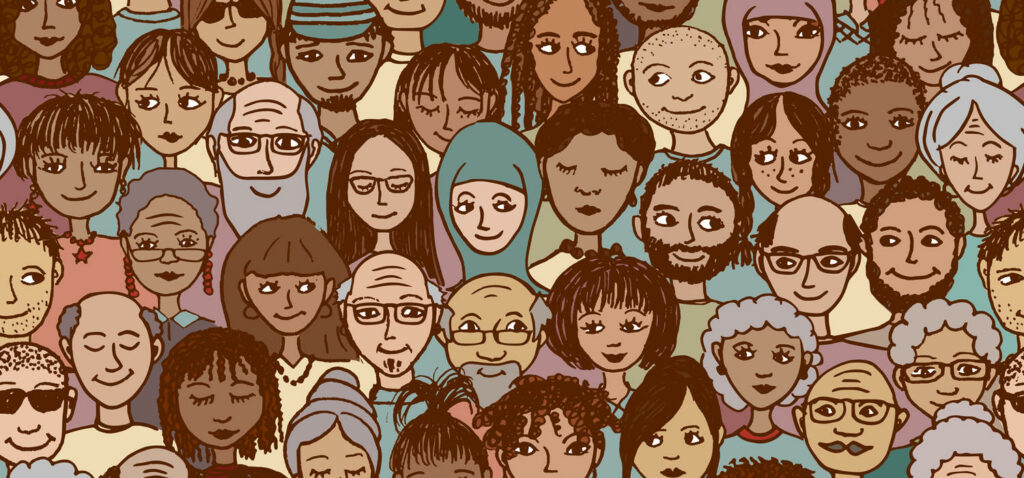Over the past year, I have read advice about how to help combat racism and inequality. Most recommendations involve educating oneself about the minority experience by reading, asking questions, and listening with an open mind, rather than relying on prior-held beliefs.
Daily life for me includes writing mysteries. Using diverse characters in my books without resorting to tokenism or stereotype has always been my goal. But I haven’t experienced racism against myself or my family members, and I can’t live inside the skins of people of different ethnicities. Reading and listening to others must be my guide to creating true characters and scenes.
Sisters in Crime, a mystery writers’ organization, recently launched an initiative to give grants to minority-owned bookstores and to promote minority mystery authors during the next year. The Romance Writers of America had a blow-up after a Chinese-American writer tweeted that a fellow writer’s novel was a “raciest mess.” The novel depicts Asian characters with “slightly yellow” skin and “slanted almond eyes,” and 19th-century Chinese women as demure, quiet, and compliant. The criticized writer sued, and the Tweeter was ousted from the RWA. Members took sides, board members quit, and chapters went under. The organization is struggling to come back with new leadership and new policies to support racial minorities.
In view of reports like these, it seems not only individual writers, but whole organizations are contending with inclusivity in different ways. I asked how the authors in a writing group deal with diversity in their books. One said, “I don’t go there.” Another told about being upbraided by another author because, in one of her books, she wrote about the “black quarter” in 1900 Kansas City. Even though it was historically correct, she cut the scene from her story. Our author of international mysteries said she doesn’t mention ethnicities and leaves it to readers to visualize the appearance of her characters. All the authors agreed we should be careful not to use clichés and to have our work checked by people with the same ethnicities or race as the characters we are creating.
A historical romance author, Theresa Hupp, says this on her blog: “I think part of the purpose of writing historical fiction is to show the time period of the novel in all its facets. Race has been an issue in American life since our earliest days.”
Authors must ask: How do we put ourselves in the shoes of other people who are older or younger; hold political opinions that make us cringe; are violent in ways we would never be; are of the opposite sex; hold different sexual orientations/interests; grew up in circumstances totally unlike our own; or are of different ethnicities? To avoid stereotypes, an author must do serious research that involves, like a method actor, learning enough to rely on an intimate knowledge of the subject to span the gap between his/her real life and someone else’s potentially very different one. One shouldn’t stereotype even minor characters—the street sweeper is a real person, not just a chance to insert a diverse character. Authors need to listen to the opinions of beta readers, just as movie studios rely on test audiences for feedback.
Author Mitali Perkins says, “It’s best to avoid socially-constructed race words like African-American, Asian-American, etc. The descriptions of physical appearances probably indicate the ethnicity of your characters even if you weren’t purposeful about it.”
In my Psycho Cat and the Landlady Mysteries, the inspiration for my characters (as well as for the cat antics) came from people (and cats) I’ve known or read about. Any stereotypes are accidental. One of the main characters in Furtive Investigation is, like my nieces, part Philippian. In Nine Lifelines, there are individuals from France, Peru, and the Ukraine. On my travels, I’ve met those people and heard stories I used as inspiration.
Plato said, “Books give a soul to the universe, wings to the mind, flight to the imagination, and life to everything.” As an author, I want to write those books. As a reader, I want to read those books. A book that inaccurately describes people and ideas corrupts the soul, clips the wings, throws obstacles at the imagination, and misrepresents life. It doesn’t mean we can’t describe unjust situations in history, as long as we don’t infer the people in those circumstances deserved to be there because of their inherent natures.
How about you, reader? Have you read books that stereotype a race, a religious group, an age group, or another minority? How do you think authors should learn about people who are different from themselves before creating a character?
